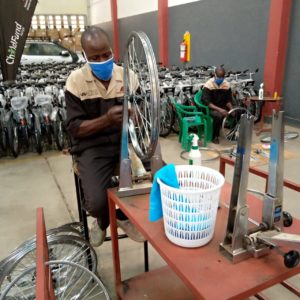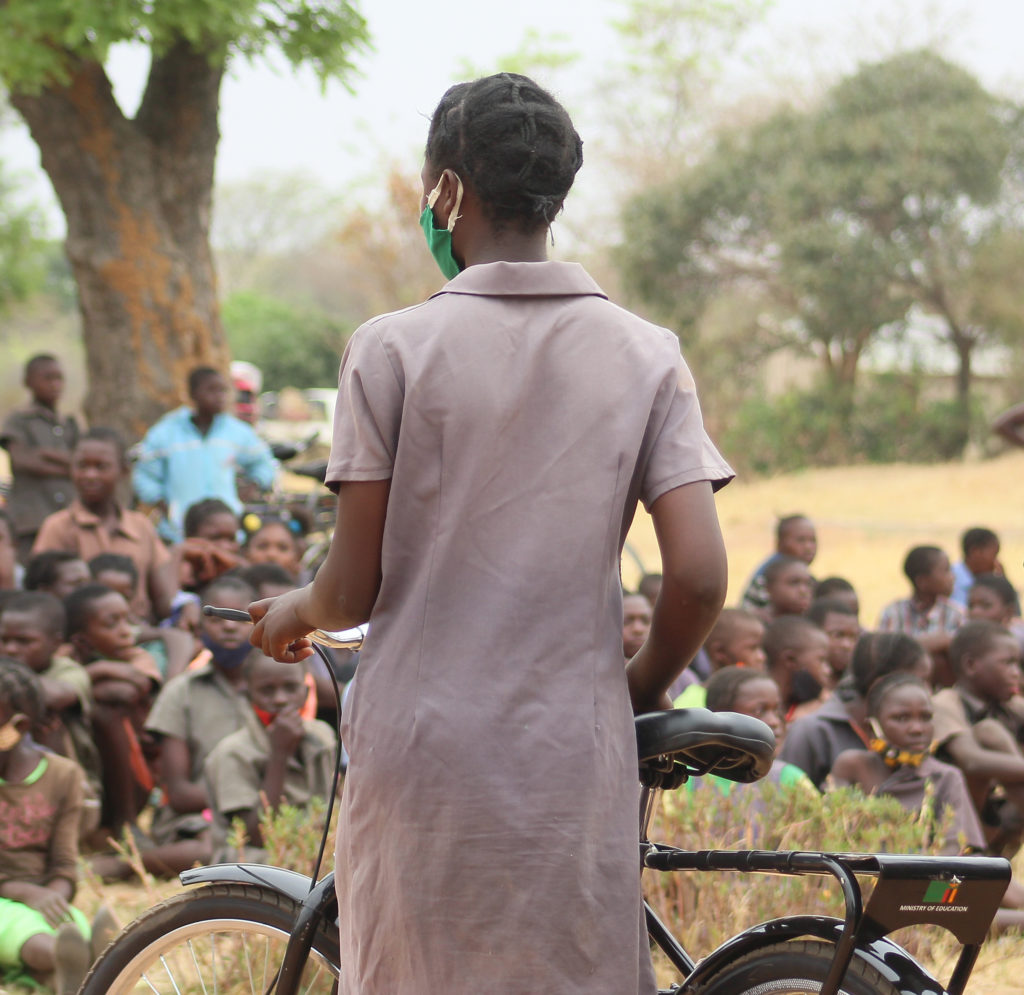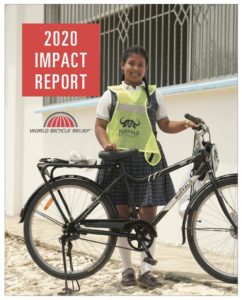Adapting to a Global Pandemic
Across the globe, the COVID-19 pandemic has dramatically altered daily life for all of us. Lockdowns, reduced public transportation and increased demand for bicycles was not just a phenomena in Asia, Europe and North America, but in the developing regions of the world where World Bicycle Relief works.
With schools closed for the majority of the year, we worked closely with governments and development partners on the ground to donate bicycles to support the expanded role of frontline health workers, the food security supply chain, and the new needs of daily commuters.
 As COVID-19 spread, day-to-day life changed in the communities we serve. Bus fares increased as fewer people took public transport and government regulations limited available options. Road closures and lockdowns restricted movement around the world. Large markets closed, forcing entrepreneurs to adapt by making door-to-door sales. Never before has the Power of Bicycles been so apparent. Interest in cycling surged worldwide in both rural and urban settings as cycling moved beyond its leisure sport status to become the safest and most reliable way to travel.
As COVID-19 spread, day-to-day life changed in the communities we serve. Bus fares increased as fewer people took public transport and government regulations limited available options. Road closures and lockdowns restricted movement around the world. Large markets closed, forcing entrepreneurs to adapt by making door-to-door sales. Never before has the Power of Bicycles been so apparent. Interest in cycling surged worldwide in both rural and urban settings as cycling moved beyond its leisure sport status to become the safest and most reliable way to travel.




